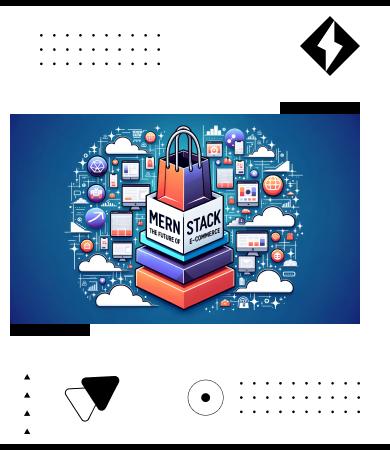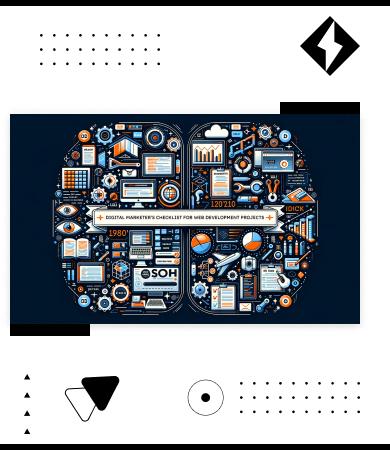Support center +91 97257 89197
Web Development SecurityNovember 14, 2023
Security Measures Every Enterprise Should Adopt in Web Development

Introduction
In an era where digital technology dominates, the security of web applications is a critical concern for enterprises. With cyber threats evolving rapidly, implementing robust Web Development Security measures has become crucial. This blog post delves into the essential security measures that enterprises should adopt, highlighting why they are indispensable in today's digital landscape.
The Rising Need for Enterprise Web Security
Recent statistics reveal a startling increase in web security breaches, emphasizing the urgent need for Enterprise Web Security. These breaches not only lead to financial losses but also damage the trust and reputation of businesses. It's clear that effective security measures are not just a technical necessity but a cornerstone of modern business strategy.
Understanding Web Security Threats
To build effective defense mechanisms, it's essential to understand the common threats in web development. These include SQL injection, Cross-Site Scripting (XSS), Cross-Site Request Forgery (CSRF), and more. Each of these threats can compromise sensitive data and disrupt business operations, underscoring the importance of robust security measures.
→ The Consequences of Security Threats
The consequences of these security threats extend beyond immediate financial loss. They can lead to long-term reputational damage, loss of customer trust, and legal repercussions, especially when user data is compromised.
Essential Security Measures
Adopting comprehensive security measures is critical in safeguarding web applications against these threats.
→ Secure Coding Practices
Secure Coding Practices are fundamental in preventing vulnerabilities. These practices involve writing code that is resilient to common security threats, such as ensuring input validation to prevent SQL injection and XSS attacks, and adopting secure error handling to prevent information leaks.
→ Data Encryption in Web Development
Data Encryption in Web Development is vital for protecting data integrity and confidentiality. Implementing SSL/TLS protocols for data in transit and encrypting sensitive data at rest are crucial steps in securing web applications against unauthorized access and data breaches.
→ Regular Security Audits and Code Reviews
Conducting regular security audits and code reviews is essential in identifying and mitigating potential vulnerabilities in web applications. These practices help in maintaining the ongoing security of the web applications throughout their lifecycle.
Advanced Security Techniques
To further enhance security, enterprises should consider advanced techniques.
→ Web Application Firewalls (WAFs)
WAFs play a critical role in protecting web applications from various external threats. They monitor and filter incoming traffic to the web application, blocking malicious requests and attacks.
→ Content Security Policy (CSP)
Implementing CSP helps in mitigating XSS attacks by specifying which dynamic resources are allowed to load, thereby enhancing the security of the web application.
→ Dependency Management
Ensuring that all third-party libraries and frameworks are up to date is crucial in protecting web applications from vulnerabilities that might arise from outdated dependencies.
Compliance and Standards
Adhering to Web Security Compliance Standards such as GDPR, HIPAA, and others, is not just a legal requirement but also a best practice in maintaining the security and integrity of web applications.
→ Importance of Compliance
Compliance with these standards ensures that web applications meet the required security benchmarks and protect user data, thereby reinforcing customer trust and avoiding potential legal penalties.
Implementing a Security-Focused Culture
Creating a culture of security within the enterprise is essential in ensuring the effective implementation of security measures.
→ Training and Awareness
Regular training and awareness programs for the development team on the latest security threats and best practices are crucial in fostering a proactive approach to web security.
→ Incorporating Security into the SDLC
Integrating security considerations into every stage of the Software Development Life Cycle (SDLC) ensures that security is a priority throughout the development process, rather than an afterthought.
Emerging Trends in Web Security
Staying abreast of the latest trends and technologies in web security is essential for enterprises to protect against emerging threats.
→ Staying Ahead of Threats
Understanding and adopting the latest security technologies and practices helps enterprises stay one step ahead of cybercriminals and secure their web applications against new types of attacks.
In conclusion, web development security is a critical aspect that enterprises must prioritize. By adopting secure coding practices, ensuring data encryption, complying with security standards, and fostering a security-focused culture, enterprises can significantly mitigate the risks associated with web security threats.
→ Encouraging Proactive Security Measures
It's vital for enterprises to take proactive steps in assessing and enhancing their web security measures. Implementing these practices will not only protect their assets but also strengthen their reputation and customer trust.
We encourage readers to evaluate their current security measures and consider the insights and strategies discussed in this blog. For further resources or consultation on web security, feel free to reach out to industry experts.
TLDR
This article explores essential security measures for web development in enterprises, covering secure coding practices, data encryption, compliance with security standards, and the importance of a security-focused culture. It highlights the need for proactive measures to safeguard against evolving cyber threats and maintain customer trust.
FAQs
Essential measures include adopting secure coding practices, implementing data encryption, adhering to web security compliance standards, and fostering a security-focused culture.
Secure coding is crucial to prevent vulnerabilities that can lead to serious security breaches, such as SQL injection and XSS attacks, thereby protecting sensitive data and maintaining application integrity.
Data encryption, both in transit and at rest, ensures the confidentiality and integrity of data, protecting it from unauthorized access and breaches.
Web security compliance standards like GDPR and HIPAA provide guidelines for data security and privacy. Compliance ensures legal adherence and enhances customer trust in an enterprise's commitment to data protection.
Enterprises can stay updated by regularly training their development teams, attending cybersecurity conferences, subscribing to security publications, and following industry experts and thought leaders in the field.
Work with us







